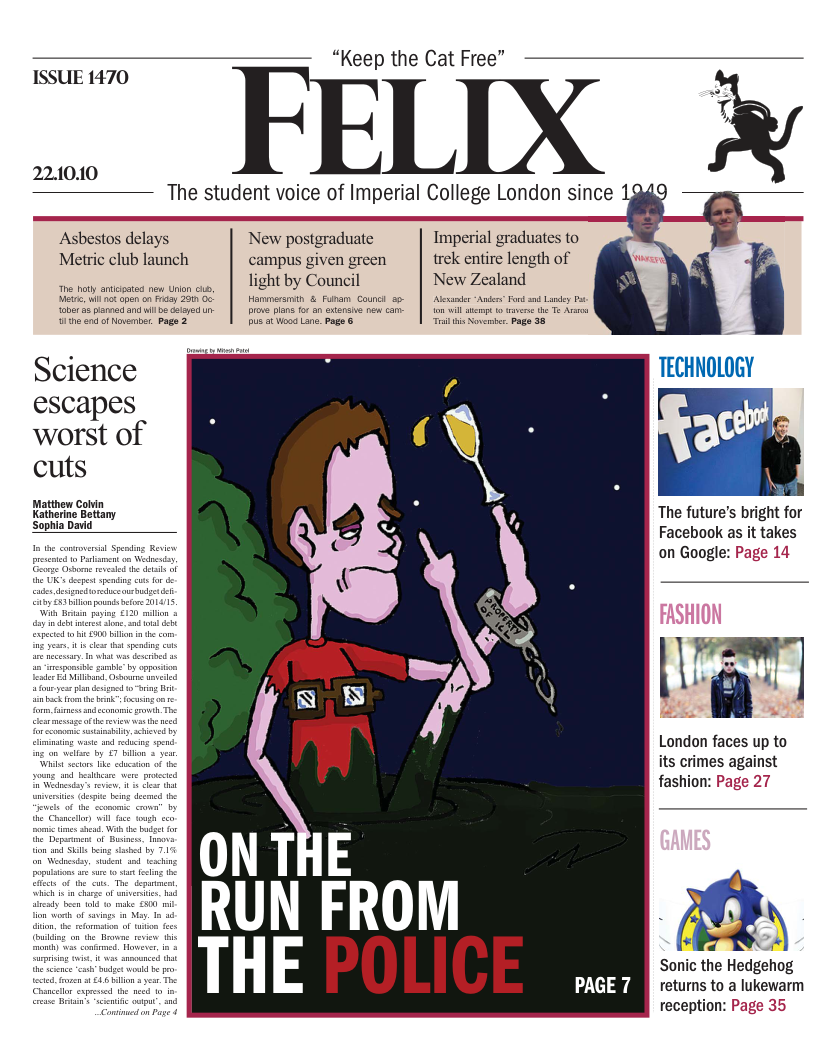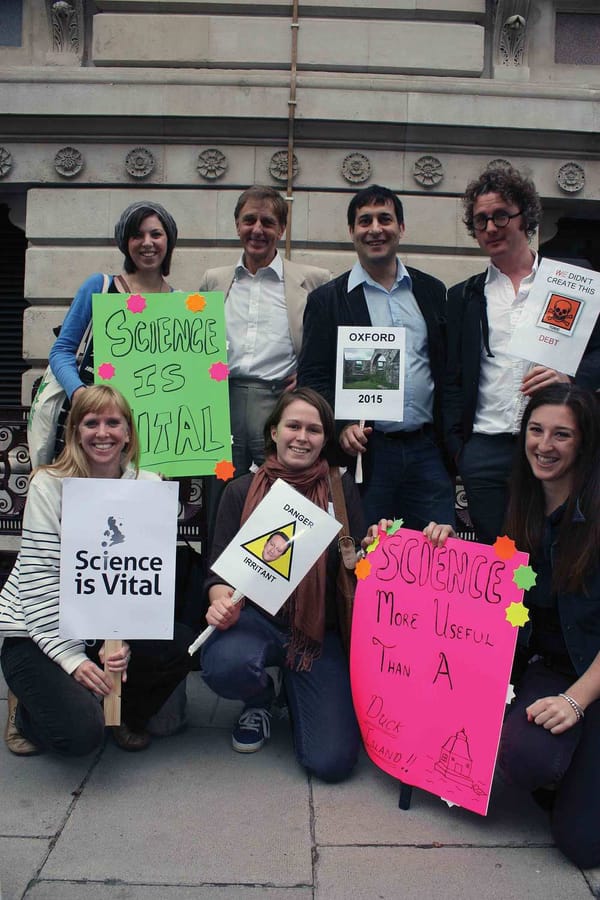"Radical change" needed to fight CO2 emissions
Imperial's Grantham Institute says that more needs to be done to stop climate change

A briefing paper released last week by the Grantham Institute for Climate Change has warned the government, industry and public that “radical changes” to the transport industry are vital in order to effectively reduce CO2 emissions. The authors, all of Imperial College research teams, reviewed current low carbon technologies aimed at reducing greenhouse gas (GHG) emissions from road transport vehicles and their fuels. The conclusion reached is that alterations to improve energy efficiency in existing vehicles will not be sufficient to cause a significant reduction in emissions and a switch to hybrid or fully electric cars, coupled with decarbonisation of the electricity grid through increased use of alternative fuels, will be necessary.
In 2008 the then elected new energy and climate change secretary, David Miliband, pledged the UK would reduce GHG emissions by 80% from 1990 levels by 2050, replacing the previous target of 60%. This included tackling the contribution of GHG emissions made by UK road transport. In 2007, transport contributed 23% of the GHG emissions from energy-related industries. Lead author of the briefing paper Dr David Howey states “the UK has one of the poorer emission track records in Europe” and highlights in the report that only through consistent political aid and policy changes involving automotive and power industry companies will this target be achievable.
The UK has one of the poorer emission track records in Europe Dr David Howey
Despite the inability to reduce emissions significantly the authors suggest changes to existing vehicles will go some way to mitigating climate change while the emerging technologies of alternative fuels and low carbon vehicles become more viable. Suggestions for effective improvements include vehicle weight reduction to improve energy efficiency in stop-start urban driving, engine downsizing, and kinetic energy recovery systems. The authors raise concerns however that improving vehicle efficiency will lower maintenance and running costs which may have the rebound effect of increasing road traffic, thereby reducing any benefits gained from such changes.
The authors also state unequivocally that a switch from fossil to alternative fuels, such as electricity and biofuels is crucial, and supports their message that there needs to be “a change in behaviour as well as technology.” Just over 90% of UK car trips are less than 25 miles which, according to the report, is encouragement for the implementation of electric cars despite barriers to this technology. However the report identifies range limitation, battery cost and reliance on a decarbonised grid as issues hindering the development of electric and plug-in hybrid electric vehicles. In addition, the report identifies long haul truck and aviation as the most likely beneficiaries of biofuels but also highlights that competition for land with food production and issues with energy efficiency are currently delaying the progression of these technologies.
Last week also saw the launch of the Electric and Hybrid Vehicle Research Network by Imperial’s Future Labs to coincide with the release of the briefing paper. Dr Ricardo Martinez-Botas co-author of the briefing paper and leader of the network explains that “the move to low carbon vehicles needs to embrace the significant and affordable changes that engineering can make. This new network brings together work from different departments within Imperial, making them aware of the different research efforts in hybrid and electric vehicles and with the aim to lead the world in setting the agenda for low carbon technology in the coming decades.” The launch event itself he reported “had a high level of attendance with contributions from leaders in the field including Miguel Fragoso from GM UK who outlined the future power train configuration to achieve low carbon impact vehicles.”









